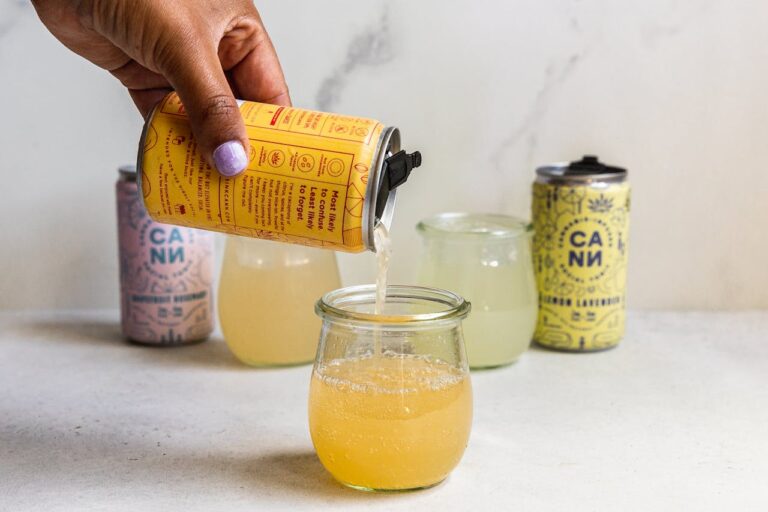Since recreational cannabis use was legalized in Colorado in 2012, many states have quickly followed suit, opening up ample new business opportunities and markets across the country. However, entering the recreational cannabis market isn’t easy. Even with legalization, states heavily regulate, tax, and control the number of sellers in their cannabis markets. But there is one offshoot of the industry that has managed to boom practically overnight with little oversight: THC beverages. Let’s talk about how that happened.
An unexpected new business
Selling cannabis products is tricky in the United States because it is still classified as a Schedule I controlled substance on the federal level (reclassification of the drug has been proposed, but that hearing was postponed earlier this year, and its fate is uncertain under the current administration). This means that cannabis business owners may have a difficult time getting funding from banks that are cautious about breaking federal laws, and can’t receive some of the same tax benefits as other businesses. However, several factors have made the sale of THC beverages an easier market to enter in the past few years, starting with the Agriculture Improvement Act of 2018.
The 2018 bill authorized the production and sale of hemp by expanding its definition to further distinguish it from marijuana: Hemp is cannabis with no more than 0.3% delta-9 THC on a dry-weight basis – anything higher is considered marijuana and still illegal to produce under federal law. This tiny change in legal language has allowed beverage makers to use technically legal amounts of THC that still have similar effects to marijuana when consumed. Additionally, as the product contained hemp and not marijuana, the beverages could be “manufactured in one place and shipped across the country, to be sold in gas stations and hotel mini-marts” rather than solely in cannabis dispensaries regulated by states.
Businesses jumped at the opportunity. Prior to 2018, THC beverages essentially didn’t exist. Today, the market is estimated to be worth more than $1 billion, with retail sales expected to reach $30 billion over the next decade.
Less alcohol and more cannabis
As one investor told the Washington Post: “We expect hemp-derived, low-dose THC drinks to outsell craft beer nationwide by 2035.” That statement may not be just wishful thinking, as sales of alcohol have been on the decline in recent years. While the alcohol industry will be quick to say there is a “war on alcohol,” in reality, there are a lot of reasons Americans are consuming less alcohol, and THC beverages are one of them.
A recent study has found that for the first time, more Americans reported near-daily use of cannabis than alcohol. Younger consumers in particular are responsible for this shift, as Gen Z is the first generation of legal drinking-age consumers who have the choice to opt for legal cannabis instead, and many are.
Additionally, a survey suggested that Gen Z drinkers prefer beer alternatives such as hard seltzers (another once fast-growing market), and THC beverages are another option that many young consumers say they prefer to alcohol.
States scramble to get ahead of the industry
But many local governments are a bit less keen on these drinks than Gen Z. So far this year, more than 80 bills have been introduced around the country to regulate the local hemp industry or ban THC drinks altogether. For example, in March, the Arizona attorney general sent letters to retailers saying it is illegal to sell THC-infused products outside of dispensaries, adding they had 30 days to remove the products from their shelves. Just last week, a ban on “smokable” products went into effect in Alabama after a judge denied a temporary restraining order. The law also heavily restricts the potency of consumable products and some stores told local reporters that as much as 75% of their business has been eliminated because of it.
In Texas, lawmakers sent a bill to the governor’s desk that would effectively eliminate the state’s hemp market. Critics of the bill argued that at least 53,000 people would lose their jobs without the state’s hemp industry and farmers also believed it would hurt their business in the state. Even though the governor chose to veto the bill, he also proposed regulating the industry the same as alcohol and provided a list of recommendations that will impact the way hemp businesses operate in the state if established.







